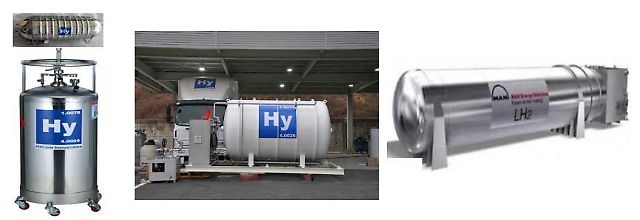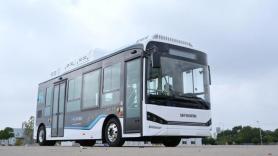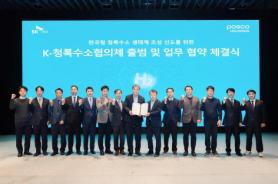
[Courtesy of the Ministry of SMEs and Startups]
Liquid hydrogen is created by cooling hydrogen gas to an extremely low temperature of about minus 253 degrees Celsius (minus 423 Fahrenheit). The liquified form has about ten times more energy density than the vapor state. South Korea has demonstrated technologies for the storage and transportation of liquid hydrogen in a regulation-free zone located in the eastern port city of Samcheok. Drones and tank trucks carrying special tanks capable of maintaining the high pressure of liquefied hydrogen were manufactured for demonstration.
Technology guidelines proposed by Choi Yong-nam, a researcher at the Korea Atomic Energy Research Institute (KAERI) specializing in hydrogen storage, were selected as a draft standard at a conference in Sydney for global standardization of liquid hydrogen technology. Choi's proposal adopted by a committee under the International Organization for Standardization (ISO) includes manufacturing requirements, performance and demonstration methods of liquid hydrogen fuel cells for aerial mobility. A group of experts will cooperate to establish specific international standards.
"Using technologies and experiences accumulated in the hydrogen industry, we will support South Korea to lead the international standardization," Korean Agency for Technology and Standards (KATS) head Lee Sang-hoon said in a statement on December 12. Urban air mobility incorporates drone taxis and personal flying vehicles. According to data released by market research firm Statista, the global UAM market is expected to reach $86.8 billion by 2035.
Copyright ⓒ Aju Press All rights reserved.




